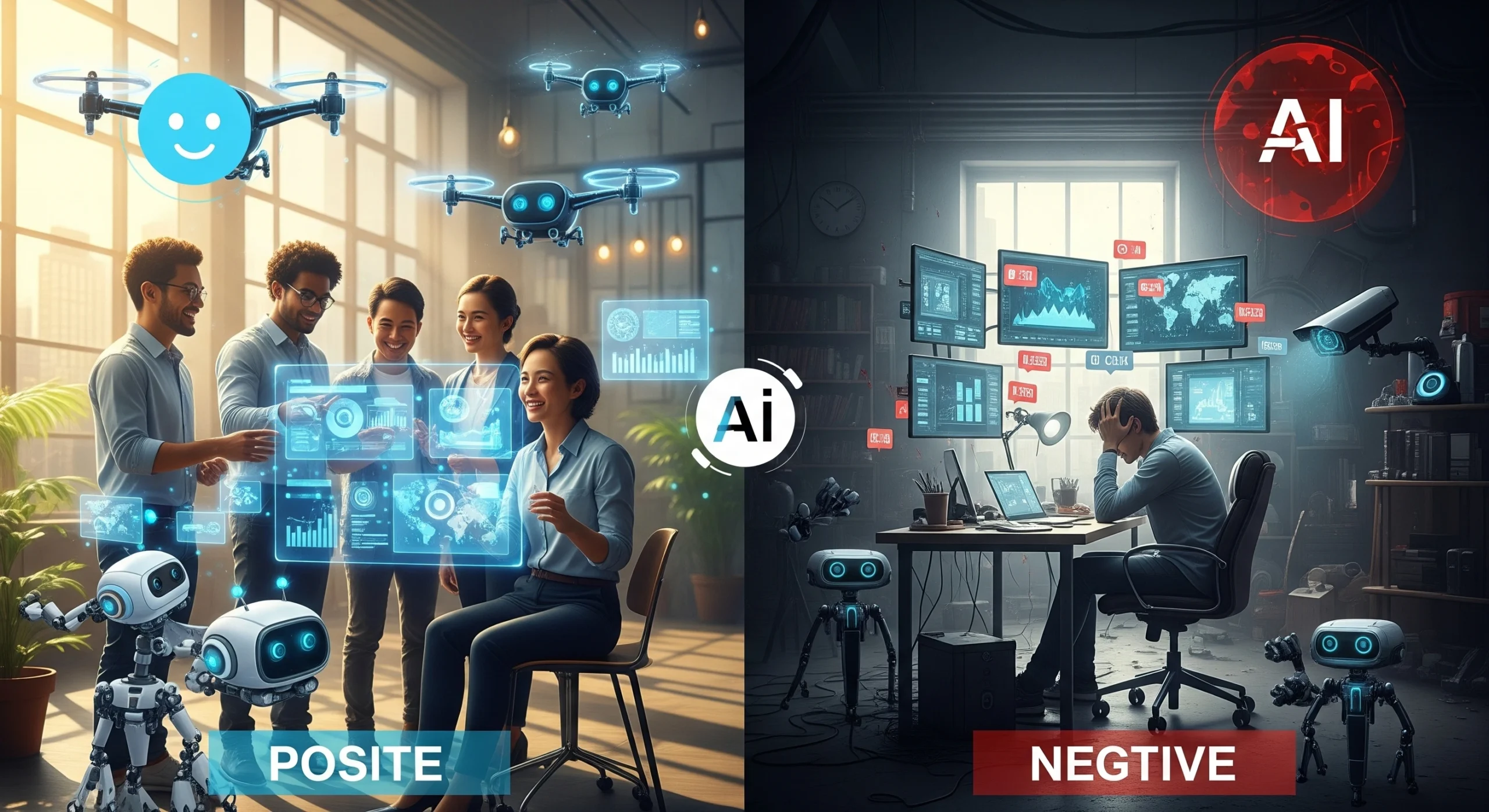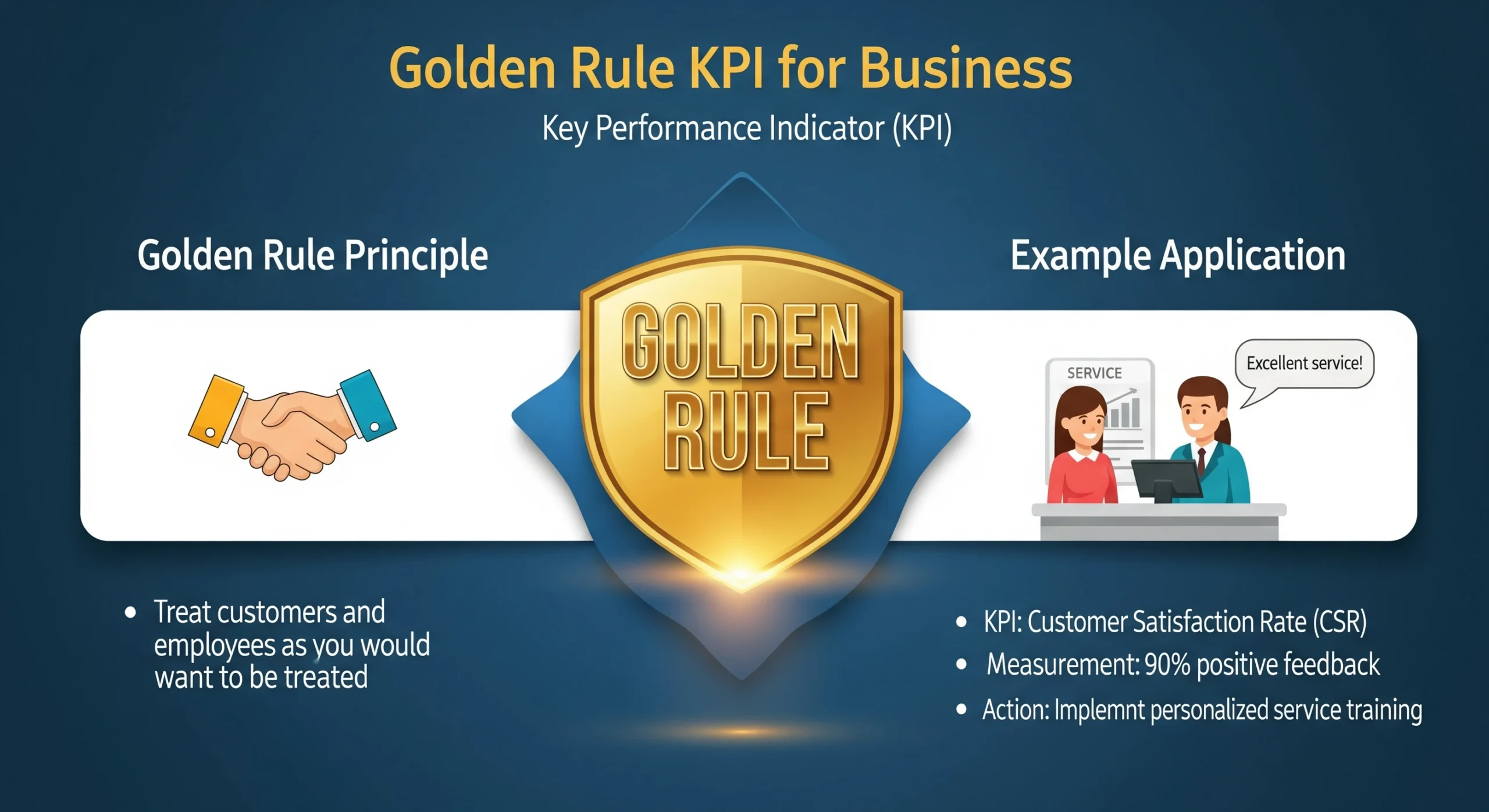I know AI marketing is tough for beginners. At the same time, it’s also challenging for experienced professionals. What are the positive and negative aspects of AI marketing? This question commonly arises among many marketers.
Overview
AI Marketing
AI marketing refers to the use of artificial intelligence technologies to enhance and automate marketing strategies, campaigns, and customer interactions. It blends data analysis, machine learning, and automation to deliver smarter, more personalized marketing experiences.

AI marketing helps businesses:
- Stay competitive in fast-moving markets
- Improve customer engagement
- Increase conversion rates
- Reduce manual workload
- Make data-driven decisions
AI Marketing Positive and Negative
AI in marketing offers powerful personalization and efficiency, but it also raises concerns around data privacy, creativity, and human oversight.
AI is transforming global businesses from traditional models to data-driven automation, enhancing efficiency, reducing costs, accelerating innovation, and personalizing experiences through cloud platforms like AWS Bedrock, Azure OpenAI, and Google Vertex AI.
Here’s a breakdown of the key advantages and disadvantages of using artificial intelligence in marketing:
Positive Side of AI Marketing
1. Hyper-Personalization and Improved Targeting
AI enables marketers to analyze vast amounts of customer data—behavior, preferences, purchase history, and demographics—to create detailed individual profiles. This allows for hyper-targeted campaigns, highly relevant content, tailored product recommendations, and personalized offers. The result is higher engagement, improved conversion rates, and stronger customer loyalty.
2. Automation and Increased Efficiency
AI automates repetitive, time-consuming marketing tasks such as email scheduling, social media posting, ad placement, audience segmentation, and even basic content generation like subject lines or ad copy. Automation reduces human error, maintains consistency across campaigns, and frees marketers to focus on strategic, creative, and high-value tasks.
3. Enhanced Data Analysis and Predictive Insights
AI algorithms can process and interpret large, complex datasets far faster than humans. By uncovering patterns and trends, AI helps marketers predict customer behavior, such as likelihood to purchase or churn. These insights enable data-driven decision-making, allowing marketers to optimize campaigns in real time and anticipate market changes proactively.
AI monitors social media and customer feedback to detect emerging trends and sentiment shifts, helping brands stay relevant and responsive.
4. 24/7 Customer Support and Improved Experiences
AI-powered chatbots and virtual assistants provide instant, round-the-clock customer support. They can handle FAQs, guide users, and personalize interactions, leading to faster response times, higher satisfaction, and stronger brand loyalty. Combined with predictive analytics, these tools enhance overall customer experience by offering relevant recommendations and proactive engagement.
5. Optimized Marketing ROI
AI continuously monitors campaign performance, automatically refining targeting, ad placements, and budget allocation to maximize effectiveness. By reducing wasted ad spend and improving content relevance, AI helps marketers achieve better returns on investment and ensures resources are used efficiently.
6. Strategic Advantages Through Predictive Capabilities
Beyond operational efficiency, AI’s predictive analytics give businesses a competitive edge. By forecasting trends, anticipating customer needs, and optimizing campaign timing, companies can proactively address challenges, seize opportunities, and launch products or campaigns at the most impactful moments.
7. Creative Content Generation Generative
AI can produce ad copy, blog posts, product descriptions, and even video scripts, freeing up human teams to focus on strategy
8. Real-Time Decision Making
AI enables marketers to respond instantly to customer behavior, market trends, and performance data, optimizing campaigns on the fly
9. Team Transformation and Upskilling
AI is not just replacing tasks—it’s reshaping marketing roles. Teams are evolving to focus more on creativity, strategy, and trust-building
- Good News for Homeless People – Trump 50 Year Mortgage Plan
- Best Laptop for Business Use in 2025
- How to Track Key Performance Indicators for Your Business
Negative Side of AI Marketing
1. Data Privacy and Ethical Concerns
AI marketing relies on collecting and analyzing vast amounts of personal customer data. This raises significant ethical and legal issues, including:
- Privacy and Security Risks: Potential breaches or misuse of sensitive information.
- Regulatory Compliance: Necessity to follow laws like GDPR and CCPA to avoid penalties.
- Ethical Implications: Over-collection or intrusive use of data can damage brand reputation and consumer trust.
2. Bias, Inaccuracy, and Lack of Transparency
AI models are only as good as the data they are trained on, which can introduce significant risks:
- Algorithmic Bias: Skewed or unbalanced datasets can lead to discriminatory targeting, exclusion of certain groups, or perpetuation of societal biases.
- Inaccuracy and Hallucinations: AI may generate misleading, false, or nonsensical content, requiring careful human oversight.
- Black Box Problem: Many AI algorithms are opaque, making it difficult to understand how decisions are made, reducing accountability and trust.
3. Loss of Human Touch and Creativity
Overreliance on AI can diminish the uniquely human elements of marketing:
- Lack of Originality: AI-generated content often lacks emotional depth, cultural nuance, and creative flair.
- Customer Alienation: Over-automation and hyper-personalization can feel impersonal, manipulative, or “robotic,” weakening brand authenticity.
- Content Homogenization: Widespread use of the same AI tools may result in similar-sounding campaigns, making differentiation challenging.
4. Implementation and Operational Challenges
Integrating AI into marketing comes with practical hurdles:
- High Costs: Licensing, infrastructure, and development of AI tools require substantial investment, especially for smaller businesses.
- Dependence on Data Quality: Poor, incomplete, or outdated data leads to flawed insights and ineffective campaigns.
- Specialized Skills Required: Teams need expertise in data science, machine learning, and AI management, adding complexity and expense.
5. Risk of Job Displacement
Automation of routine tasks such as data entry, reporting, and basic content generation may reduce the need for entry-level roles, raising concerns about workforce impact.
Conclusion
AI is reshaping the marketing landscape by offering unprecedented opportunities for personalization, efficiency, and strategic insight. It empowers brands to connect with customers in smarter, faster, and more meaningful ways. From predictive analytics to automated content creation, AI helps marketers stay agile and competitive in a data-driven world.
However, with great power comes great responsibility. Ethical concerns around data privacy, bias, and the loss of human touch must be addressed thoughtfully. The most successful marketing strategies will blend AI’s capabilities with human creativity, empathy, and oversight.





Leave a Reply